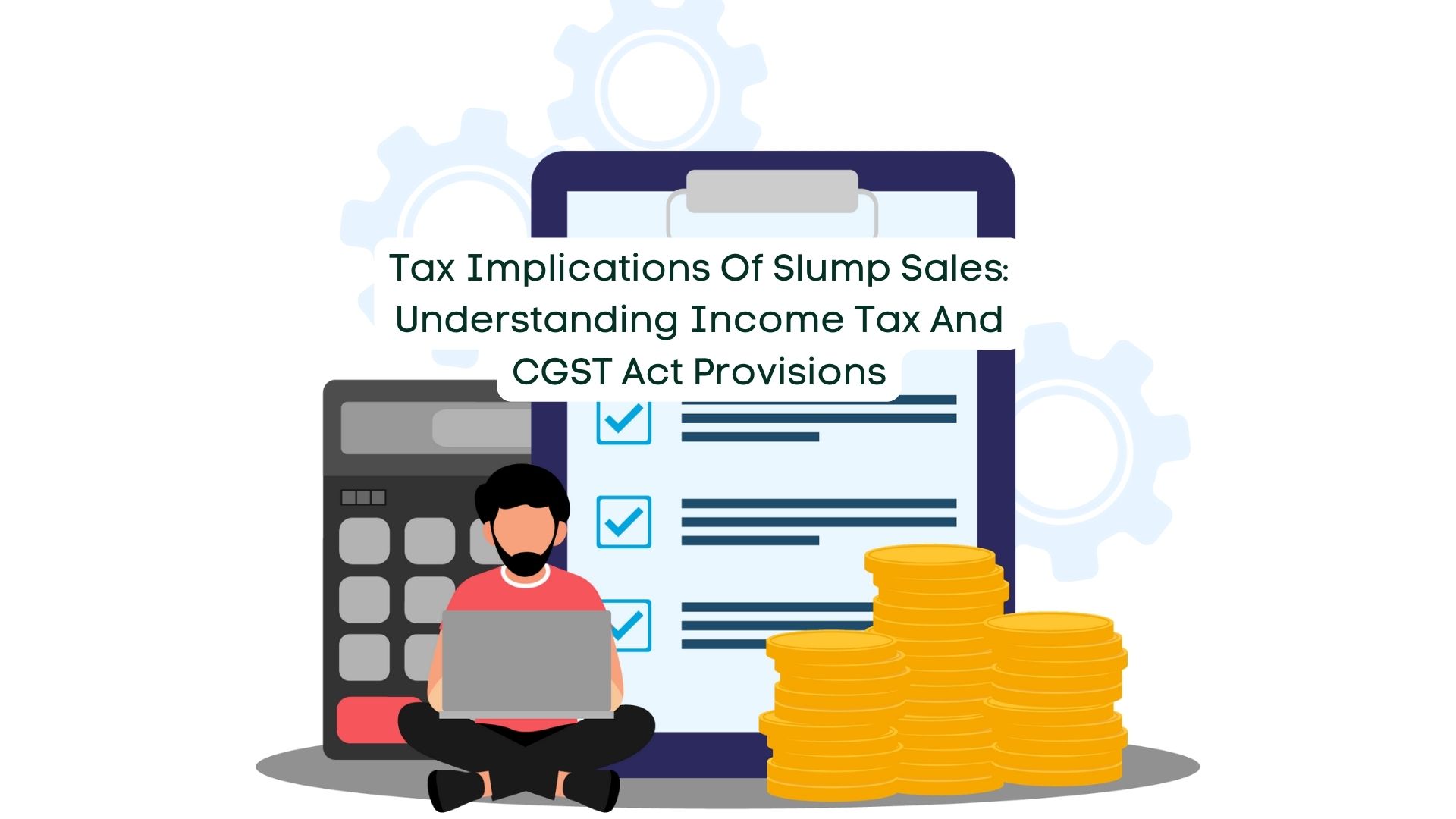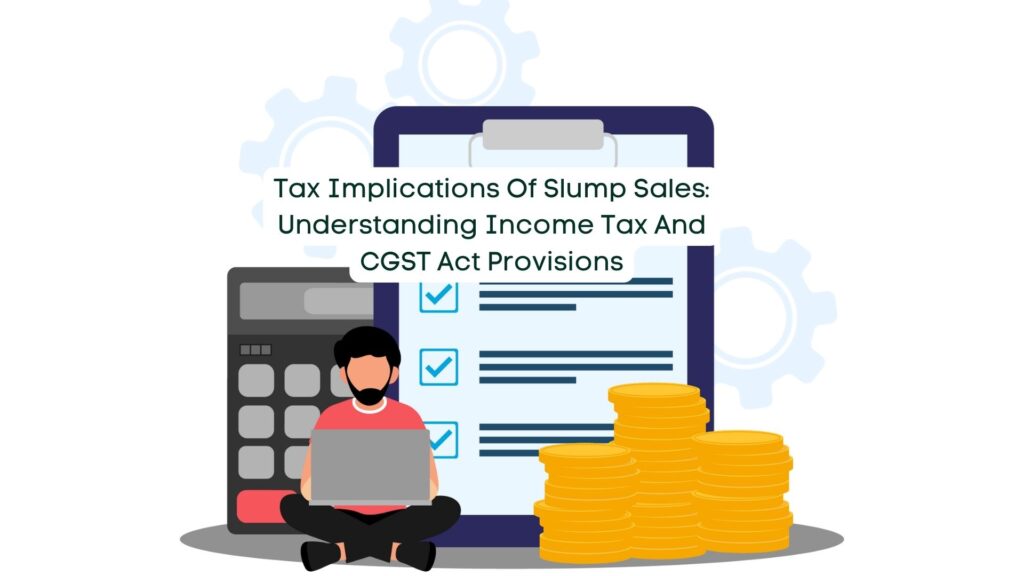
23 Feb Tax Implications of Slump Sales: Understanding Income Tax and CGST Act Provisions

In today’s dynamic business landscape, enterprises often operate across diverse sectors, managing multiple undertakings simultaneously. This diversification may lead to scenarios where companies possess distinct assets and liabilities within each business segment. Consequently, companies may consider divesting either a portion or the entirety of a business unit if the need arises, a transaction commonly known as a slump sale. This article delves into the intricacies of slump sales and examines their taxation under the Income Tax Act and the Central Goods and Services Tax (CGST) Act.
Concept of Slump Sale
A slump sale entails the transfer of an entire business or a segment thereof as a going concern. As per Section 2(42)(C) of the Income Tax Act, 1961, a slump sale is characterized by the transfer of assets and liabilities without individual valuation.
Defining Slump Sale
A slump sale involves:
- The transfer of one or more businesses.
- A lump-sum consideration exchanged for the sale.
- The absence of individual valuation of assets and liabilities.
Explanation 1 to section 2(19AA) elaborates on the scope of an “undertaking,” encompassing various business units but excluding isolated assets or liabilities.
Considerations to Note
Key considerations include:
- Payment made without individual asset valuation.
- The transaction is not solely determined by valuing specific assets like plant, machinery, or stock.
- Clarifications provided under Explanation 2 to section 2(42)(C) regarding stamp duty implications.
- Exclusion of liabilities from the transferred assets.
- No mandatory court approval.
Taxation under Income Tax Act, 1961
Section 50B governs the computation of capital gains arising from slump sales. Key aspects include:
- Special provision overriding other tax provisions.
- Classification of gains based on the holding period.
- Taxability in the year of transfer.
- Computation formula: Capital Gain = Sale Consideration - Net Worth.
- Determination of net worth considering assets and liabilities.
GST Implications
Pre-GST era saw slump sales exempt from Sales Tax or VAT due to the transfer of a business as a going concern. Post-GST implementation, clarity is sought regarding CGST applicability to slump sales. While the definition of “Supply” under CGST Act is broader, judicial interpretations suggest GST may not apply to slump sales, given the absence of “business as a going concern” in the definition of “goods.”
Conclusion
Slump sales offer an efficient solution for M&A transactions, characterized by simplicity and cost-effectiveness. While they streamline processes, specific board resolutions are essential for execution. Understanding tax implications under both the Income Tax Act and CGST Act is crucial for navigating slump sale transactions effectively.


No Comments